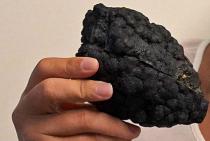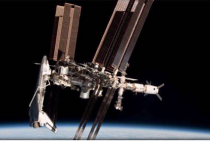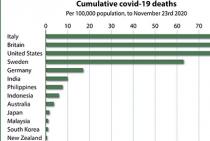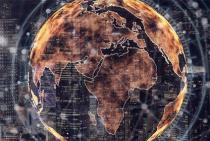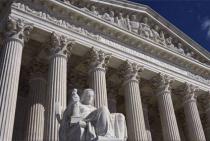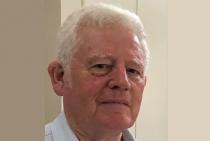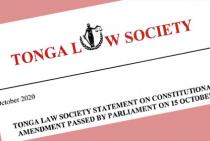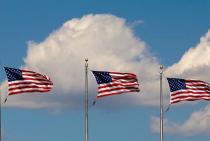The world’s current vaccination plan is very much “broke,” and nobody seems to be fixing it, despite the disastrous consequences for lives, livelihoods, and the global economy. This was supposed to be the year of recovery. But, from an epidemiological standpoint, it is shaping up to be worse than 2020, and current dynamics suggest that 2022 will be no better. It does not have to be this way. But getting onto a better path will require strong global leadership. The world has multiple effective vaccines available. But it is not moving nearly fast enough to administer them. - By Ricardo Hausmann.
You are here
Results for Opinion
Thursday 18 March 2021
London, United Kingdom
It is curious that presidents possess such unaccountable power at all. America’s founders rejected absolute monarchy and its trappings (such as noble titles), and yet the pardon power is descended from just such a monarchical power, the royal prerogative of mercy. Trump’s blatant violation of the original intent of the presidential pardon was just one of many challenges he posed to the political system established by the US Constitution. Johnson displays similarly worrying traits. Faced with such threats, courts and legislatures need to recall their true purpose: preventing the unchecked exercise of executive power. By Nicholas Reed Langen.
Tuesday 16 March 2021
Nuku'alofa, Tonga
Personally, I place big question marks at the choice of some of the businesses mentioned in this article. I do not have the experience with them myself that they seriously try to avoid or reduce using plastic bags. But aside from that, those who are really serious have my full support. If used wisely plastic has enough advantages in order not to want to do away with it. It is de laziness of people which is the problem. -Firitia.
Monday 1 March 2021
Nuku'alofa, Tonga
The debate over whether or not to turn to the deep sea to secure the resources we need for a low-carbon future has generated much public interest, but it is critical that this debate is founded upon sound science and the best data currently available. As such, I would like to correct a number of misrepresentations in the letter of Feb. 25 from the Civil Society Forum of Tonga. - Christina Pome'e, Tonga Offshore Mining Ltd.
Thursday 25 February 2021
1 comment
Nuku'alofa, Tonga
Deep Sea Mining (DSM) of polymetallic nodules in the Pacific Ocean is not essential for a renewables revolution. There would be massive amounts of waste produced and discharged to the ocean. The discharge plumes may also be quite toxic, with metals and processing agents. As Pacific Islanders already know - what happens in the deep doesn't stay in the deep. - Pelenatita Kara, Civil Society Forum of Tonga.
Wednesday 10 February 2021
Washington DC, U.S.A
America and China should cooperate in space. Although the United States can no longer take its extraterrestrial dominance for granted, it remains the leading player, while China’s space capabilities are growing fast. Most important, both countries, along with the rest of the world, would benefit from a set of clear rules governing the exploration and commercialization of space. By Anne-Marie Slaughter and Emily Lawrence.
Tuesday 26 January 2021
New York, USA
Just as political leaders like Donald Trump and Jair Bolsonaro have forced a reckoning about the historical persistence of fascist politics, so have their disastrous responses to the COVID-19 pandemic renewed the relevance of the concept of genocide. How else are we to come to grips with so many culpably avoidable deaths? As in Brazil, Indigenous communities in the US have suffered disproportionately from the pandemic. By Federico Finchelstein and Jason Stanley.
Tuesday 12 January 2021
Boston-Mass, USA
Though mainstream observers were shocked that Donald Trump increased his support among many ethnic minority groups in the 2020 election, this should not have come as a surprise. The common thread linking the Trump base has little to do with demographics, and much more to do with a personality type. As president, Trump not only deployed racist, sexist, homophobic, xenophobic, and Islamophobic rhetoric, but actually baked it into his policies. So why does the 45th president appeal to so many voters whose ethnic, religious, and sexual identities he has mercilessly disparaged? Unless we improve our understanding of these voters’ overriding identification with those able and willing to exercise power, and their own latent thirst for power, we risk being blindsided by it again. By Yasheng Huang.
Monday 4 January 2021
1 comment
Tofoa, Tonga
At the current pace of repatriation it will take over a year to return home all of those abandoned abroad. We run the risk of slipping into the depths of economic and mental depression, and we may see the fragmentation of our society, both at home and abroad, if we don’t immediately grasp the advent of vaccines and start building the bridges. At Easter it will be a full year from the closing of the border. It is time to prepare for the “new beginning”, the new life. By Paul Karalus.
Wednesday 30 December 2020
London, United Kingdom
In the early stages of the COVID-19 pandemic, it was common to divide countries and their responses according to their political systems, with many attributing China’s success in controlling the virus to its authoritarianism. As of late 2020, however, it is clear that the real dividing line is not political but geographical. Regardless of whether a country is democratic or authoritarian, an island or continental, Confucian or Buddhist, communitarian or individualistic, if it is East Asian, Southeast Asian, or Australasian, it has managed COVID-19 better than any European or North American country. The fact remains that you were much likelier to die of COVID-19 in 2020 if you were European or American than if you were Asian. - By Bill Emmott
Friday 11 December 2020
Queanbeyan, Australia
I agree with you that the PACER Plus trade agreement is of questionable benefit for Tonga. But I do not share your concern for Tonga’s trade deficit. Over the last year, Tonga’s foreign reserves have increased about 19% to the equivalent of nearly 10 months’ imports. If the balance of trade were a problem for Tonga, its foreign reserves would be declining. - Leigh Harkness
Tuesday 8 December 2020
Cambridge-MA, USA
According to the conventional wisdom, the twenty-first century will be characterized by the global shift from American hegemony to Sino-American rivalry. But a bipolar international order is neither inevitable nor desirable, and in fact, would be deeply unstable. Its emergence would heighten the risk of violent conflict and three of the biggest challenges facing humanity would either be ignored or made worse. We should start imagining and working toward alternative arrangements. - By Daron Acemoglu.
Wednesday 25 November 2020
Washington DC, USA
Though it has not come as a surprise, the attack on the credibility of the 2020 election by US President Donald Trump and his Republican Party cannot simply be brushed under the rug of history. Once the norms that underpin constitutional democracy have been tossed aside, there is little left to fight for. America’s failures to address past injustices – including the subjugation of indigenous peoples, slavery, racism, and the deprivations of the poor, immigrants, and the incarcerated – helps to explain why trust in democratic institutions has been so corroded in the first place. Having been made brittle, America’s institutions have long been vulnerable to attack. By Katharina Pistor
Friday 20 November 2020
London, United Kingdom
For much of its life, the United Nations has hidden behind the comfortable maxim that, “If we didn’t have it, we would have to invent it.” Now at the venerable age of 75, the organization still enjoys widespread approval in global opinion polls. But beneath the surface, the UN faces difficulties that cannot be ignored. The Security Council will remain ineffectual until it is reformed, which is a distant prospect. But there are ways around this paralysis. By Mark Malloch-Brown.
Monday 16 November 2020
Oxford, United Kingdom
The last time the world faced challenges as serious as those facing us now was in the period immediately following World War II. At that time there was an extraordinary burst of international institutional creativity, led by the United States. The late 1940s saw the creation of the IMF, the World Bank, the Marshall Plan, the United Nations, which the WHO joined in 1948, and the GATT, now the WTO. If countries in Asia want a multilateral system to survive, they need to promote, use and improve it. The G20 Summit in Riyadh on 20–21 November will provide an opportunity to push forward this agenda. By David Vines / East Asia Forum.
Sunday 8 November 2020
Melbourne, Australia
Joe Biden has won the US presidency, but he will have a hard time restoring ethical concerns in a country with so many voters who have become indifferent to the well-being of those outside their immediate communities. Donald Trump has been defeated, but the election showed that more Americans than ever have come to identify with his narcissism. By Peter Singer
Monday 26 October 2020
Chicago, USA
Throughout US President Donald Trump's first term, there has been constant hand wringing over a "constitutional crisis" that never arrived. The irony is that an administration led by Joe Biden would almost certainly confront such a crisis, owing to Trump's transformation of the Supreme Court into a right-wing redoubt. A constitutional crisis, properly understood as a turning point that might lead to collapse or transformation of the system, has not occurred. But such a crisis does now appear increasingly likely. By Eric Posner.
Friday 23 October 2020
Melbourne, Australia
With the exception of decent New Zealand and arguably Australia, the rich, European ethnicity countries of the US Alliance have been involved in intentional Gerocide (mass killing of the elderly) in which their deliberate Covid-19 pandemic policies have resulted in “Covid-19 deaths per million of population” 10-180 times greater than in New Zealand (5). Expression of a deliberate intention to cause avoidable death of large numbers of people, and specifically of elderly people, would be unacceptable in politically correct Western democracies. But, unspoken and publicly unacknowledged, Gerocide is what has been happening in North America and Western Europe during the Covid-19 pandemic. By Dr Gideon Polya.
Thursday 22 October 2020
Nuku'alofa, Tonga
The Tonga Law Society is deeply concerned at the amendment to the Constitution of Tonga passed unanimously by Parliament on 15 October 2020. In bypassing the consultation process, Parliament has denied the Tongan people the most fundamental right to be heard on a matter of elemental importance to every Tongan subject. - Sione Tu'itavake Fonua, President, Tonga Law Society
Tuesday 20 October 2020
Chicago, USA
For all the hand wringing over Donald Trump's authoritarian rhetoric, the 2020 US election is not really about the incumbent. It is about deep-seated suspicion regarding the national government's role, which makes populism a recurring feature of American political history. By Eric Posner.





